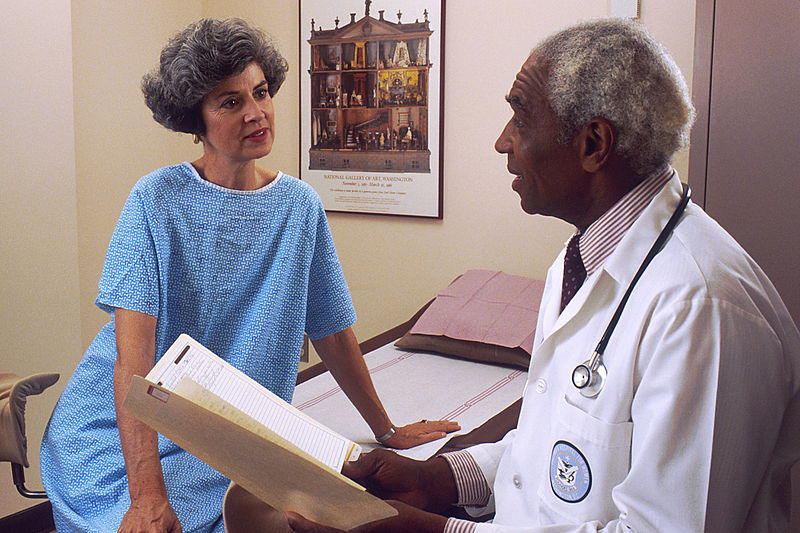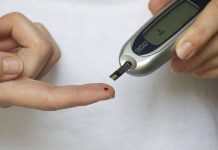Menopause is a time of major change for women, both physically and mentally. The beginning stages of menopause are marked by changes like irregular menstruation, hot flashes, mood changes, weight gain, sleep issues and other difficulties. Adapting to our changing bodies can be an ongoing challenge, but there are lifestyle changes we can make to help the transition go more smoothly.
“Taking time to recharge your batteries through meditation, yoga, a workout, an adult coloring book or whatever helps you center yourself will benefit you in the long term”
1. Stop Smoking
Smoking causes lung cancer, emphysema, COPD and heart disease. It’s also a risk factor for osteoporosis as well as a trigger for hot flashes. Smoking cigarettes can lead to significant complications if you choose to treat menopause symptoms with hormone replacement therapy, so if you haven’t put down the pack yet, now’s the time. Your doctor will be happy to guide you toward an appropriate smoking cessation aid if you need one.

2. Find Time For Daily Stress Relief
This is important at all stages of life, but the mood changes experienced by menopausal women can be particularly stressful. When we experience stress, our bodies release harmful cortisol which negatively affects heart health and makes weight loss harder. Taking time to recharge your batteries through meditation, yoga, a workout, an adult coloring book or whatever helps you center yourself will benefit you in the long term.
3. Wear Layers
This is one of the easiest menopause lifestyle changes. Hot flashes are one of the most common symptoms experienced by menopausal women, and they can hit anywhere from the frozen foods aisle to the ice skating rink. Dressing in light layers means you can cool off easily if a hot flash hits unexpectedly. Cardigans, undershirts, hoodies and light jackets are all great picks.
4. Do Kegels
Your pelvic floor muscles are connected to your uterus, bowels and bladder. By doing simple exercises called Kegels, you can strengthen those muscles and potentially prevent urinary incontinence. The exercise is simple – just focus on your pelvic floor muscles, tighten them for a few seconds and release. This should be done 10 times in a row three times a day for maximum benefit.
“Doctors often recommend using a supplement, available in pill, chewable or liquid form, to safeguard against bone loss”

5. Get a Workout
Regular exercise curbs weight gain, prevents heart disease and lowers osteoporosis risk. It can positively impact mood and reduce the frequency of hot flashes, so if you’re not already hitting the gym, now is a great time to start. 30 minutes daily is a good average, but always follow your doctor’s recommendation. If you’re not a natural athlete, make sure you pick an activity you enjoy to help you stay dedicated.
6. Consider Supplements
As your body changes, your need for Calcium and Vitamin D increases slightly. Doctors often recommend using a supplement, available in pill, chewable or liquid form, to safeguard against bone loss. It’s not a good idea to overdo either of these, however, as it can lead to kidney issues and constipation. Your doctor can help you decide what’s best.
7. Eat a Healthy Diet
It’s always a good idea to eat healthily, but it’s especially beneficial during menopause lifestyle changes. A balanced diet with low sugar that includes dark greens, whole grains and antioxidant-rich foods will lower your blood sugar and blood pressure and benefit your cardiovascular health.
Your doctor can make recommendations and make you aware of any medications you take that may interact with certain foods(grapefruit is one common trigger).
8. Don’t Stop Birth Control Too Soon
When you’re in perimenopause, you may still experience irregular periods. This stage may last for years, and there is a chance you are still fertile. If you are trying to prevent a pregnancy, do not stop using birth control until your doctor tells you that you should.
“Sugary drinks are particularly bad for your health, so minimize your alcohol consumption and avoid sugary mixers like sodas, tonics and certain juices if you do decide to have a cocktail”
9. Monitor Your Heart Health

Along with lifestyle factors, age is a risk factor for heart disease. Having your cardiovascular health monitored regularly by your doctor is important at this stage, because it often detects potential issues that are asymptomatic before a medical event occurs. In addition to tracking your blood pressure, blood glucose, cholesterol and medical history, your doctor may want to perform an EKG or stress test for a closer look.
10. Limit Alcohol Consumption
A glass of wine every now and then is okay, but more than three glasses of alcohol a day is linked to breast cancer. It’s also a major hot flash trigger and a source of empty calories. Sugary drinks are particularly bad for your health, so minimize your alcohol consumption and avoid sugary mixers like sodas, tonics and certain juices if you do decide to have a cocktail.
Having a healthy and happy change of life is possible. While it can be difficult, making healthy lifestyle changes can have a huge impact on your quality of life during this time. Your doctor can help guide you in the right direction, advising you on procedures, diets and supplements that may be right for you. By taking an active role in your menopausal health, you can make your change a positive one.
Sources & References:
https://www.healthline.com/nutrition/menopause-diet
https://www.mayoclinic.org/healthy-lifestyle/stress-management/in-depth/stress/art-20046037





















